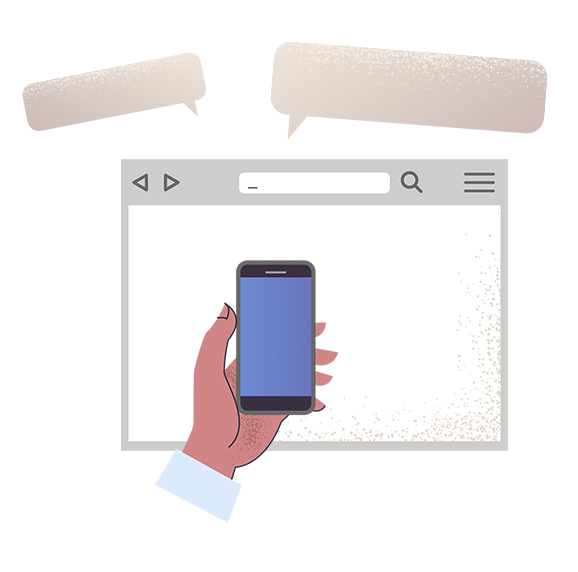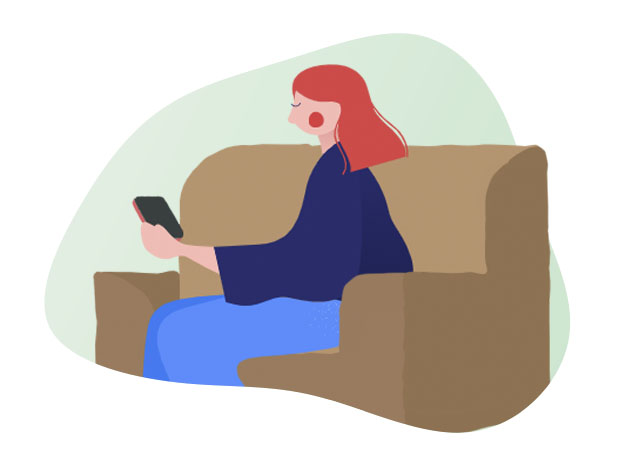
Cystitis
Cystitis – the most common form of urinary tract infection – is an inflammation of the bladder usually caused by bacteria from the gastrointestinal tract (the digestive pathway through the body). It is more common in women than in men, with an estimated 4 million women in Britain suffering from cystitis every year. In mild cases, it can resolve itself in a matter of a few days. However, if you are experiencing cystitis frequently or for longer periods of time, rest assured that there are medications that can be prescribed to help ease the symptoms and encourage recovery.
Showing all 3 results
-
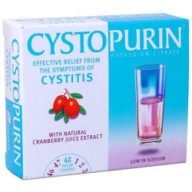
Cystopurin
Cystopurin is a 48 hour treatment for the symptoms of cystitis
£5.95 -
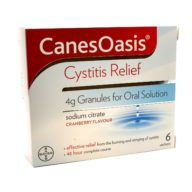
CanesOasis
CanesOasis contains an active ingredient that reduces the acidity of your urine. This reduction of acidity level helps alleviate the stinging and pain that you experience when you urinate.
£5.49 -
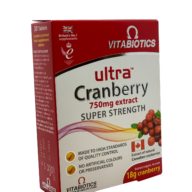
Ultra Cranberry
Made from natural Canadian cranberries, Ultra Cranberry is a source of Proanthocyanidins, the pigments that appear in red, purple and blue fruits and berries.
£7.95
Showing all 3 results
What are the symptoms of cystitis?
The signs and symptoms of cystitis are quite easily recognisable and identifiable – you will usually experience the following:
• Pain, a burning sensation, or stinging when you pass urine
• Needing to pass urine more frequently and more urgently than you would usually
• Urine that is dark or cloudy, and potentially strong smelling
• Pain in the lower tummy area
• General feelings of unwellness, sickness, aches, and tiredness.
Symptoms may present differently in younger children. They are likely to feel pain in their tummy, need to urinate more often and more urgently, have a high temperature, feel week or irritable, and potentially have a reduced appetite or vomiting.
What should you do to lessen the symptoms of cystitis?
There are certain methods you can use to lessen the discomfort caused by cystitis. Take paracetamol or ibuprofen, stay hydrated, and hold a hot water bottle between your thighs or on the stomach to help ease irritation. Try to avoid having sex while you are recovering from cystitis. Clean the area around the genitals gently with soft, skin-sensitive soap, and ensure that when you go to the toilet you wipe from front to back to keep the affected area as clean as possible.
When should you get help with your cystitis?
If your cystitis has not improved within a 3 day period, you should see a healthcare professional. You should also seek the help of a professional if you suffer from cystitis frequently, have more severe symptoms such as blood in your urine, fever, or additional pain, or if you are unsure as to whether you have cystitis or not. You should also contact a healthcare professional if you are pregnant, a man, or if your child has symptoms.
What treatments are available?
Cystitis is a treatable condition, and you can be prescribed medications to reduce the acidity of urine to ease discomfort and irritation and make the bladder a less habitable place for the bacteria that cause the condition.
Here at Pillhub, we are a fully registered UK pharmacy. We only use medications that have been approved by the Medicine and Healthcare products Regulatory Agency (MHRA) so you can rest assured that all of the medications we provide are safe and authorised for use in the UK.

 works
works